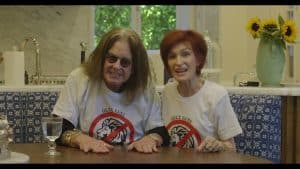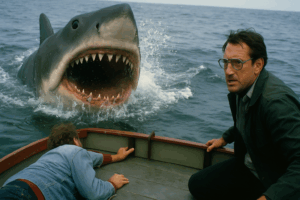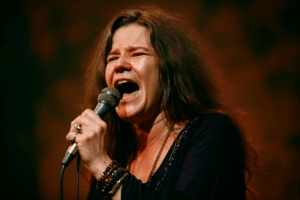5 Defining Moments That Changed the Course of The Beatles’ Career

via The Beatles / YouTube
The Beatles’ journey was not just a steady climb to the top—it was a series of sharp turns, bold risks, and unexpected opportunities that shaped their story. Behind the music that defined a generation, there were moments where one decision, one meeting, or one shift in direction changed everything. These moments didn’t just push the band forward; they redefined what success looked like in popular music.
Had those pivotal choices not been made, The Beatles would still have likely left their mark, but the scale and nature of their legacy might have been very different. It’s easy to imagine them as a popular group of their era rather than the cultural phenomenon they became. Each key turning point didn’t just alter their career path—it reshaped the entire landscape of modern music.
Looking back, these five defining moments stand out as the real game-changers in The Beatles’ rise. They reveal how fragile and unpredictable even the most legendary careers can be, hinging on the right moves at the right times.
Ringo Starr’s Arrival Completes the Beatles’ Chemistry
Pete Best’s departure was one of the earliest dramatic shifts in The Beatles’ story, and it changed the group in ways that still resonate today. Best had his strengths, but his style and demeanor didn’t quite mesh with the rest of the band. When Ringo Starr stepped in, his drumming brought a steady, precise foundation that The Beatles could build on. Beyond his musicianship, his easygoing personality meshed seamlessly with the others, turning four talented individuals into a true unit.
Ringo also brought an unexpected bonus: a distinctive voice that added to the band’s range. While he wasn’t the most frequent lead vocalist, whenever he did step up to the microphone, it added novelty and charm. Songs like “Yellow Submarine” and “With a Little Help from My Friends” showed how much variety he offered. That versatility helped elevate The Beatles from just another group to a band with four unique personalities that audiences connected with.
In hindsight, it’s easy to underestimate how important this shift was. A single lineup change might not seem monumental, but for The Beatles, it was the missing puzzle piece. With Ringo, the chemistry was complete, and the group had the stability they needed to land their first recording contract and embark on the next stage of their journey.
Ed Sullivan Show Appearance Turns Beatlemania Global
The Beatles had already conquered Britain, but the United States was an entirely different challenge. Countless British acts had tried and failed to make a dent across the Atlantic. Yet when The Beatles landed in New York in February 1964, the timing was nothing short of perfect. Their single “I Want to Hold Your Hand” was already climbing the charts, priming American audiences for their arrival.
What truly cemented their breakthrough was their appearance on The Ed Sullivan Show. Over 70 million viewers tuned in, and for many Americans still grieving the loss of President John F. Kennedy just months earlier, The Beatles’ performance offered a rare burst of joy. Their mop-top haircuts, witty banter, and undeniable energy brought an electric sense of optimism at a time when the country desperately needed it.
This moment wasn’t just about record sales or screaming fans—it was about cultural impact. The Beatles didn’t just break into America; they ignited a movement that would become known as the British Invasion. That one appearance ensured they weren’t just a British phenomenon, but a global one.
View this post on Instagram
A Hard Day’s Night Expands Their Influence Beyond Music
Venturing into film could have been a misstep, but A Hard Day’s Night turned into another defining moment in the band’s career. The Beatles didn’t overthink it; their busy schedules left little room for involvement in script or production details. Instead, they simply showed up, played themselves, and let their natural chemistry take over.
The result was a movie that perfectly captured their chaotic lifestyle, the humor of their personalities, and the relentless pace of Beatlemania. Richard Lester’s inventive direction, combined with Alun Owen’s sharp screenplay, allowed the band’s individuality to shine while presenting them as a unified force. It was both stylish and surprisingly authentic.
By proving they could command the silver screen as effortlessly as the stage, The Beatles expanded their cultural footprint beyond music. The film gave fans a more intimate connection with the band while also earning critical praise. Suddenly, The Beatles weren’t just chart-toppers—they were multi-platform stars who could influence cinema as well as sound.
Quitting Touring Sparks a Creative Revolution in the Studio
By 1966, the relentless grind of touring had taken its toll. The Beatles were playing to stadiums full of screaming fans who often drowned out the music, leaving them frustrated and uninspired. Their final concert at San Francisco’s Candlestick Park marked the end of an exhausting chapter. George Harrison reportedly wondered if the band could even continue without live performances, highlighting just how radical the decision seemed.
Yet the move to stop touring wasn’t about giving up—it was about evolution. With touring off the table, The Beatles poured their energy into the studio, using it as a creative laboratory. Freed from the limitations of performing songs live, they began experimenting with sounds, instruments, and recording techniques that would redefine rock music.
The payoff was immediate. Their next projects—Revolver and Sgt. Pepper’s Lonely Hearts Club Band—pushed the boundaries of what an album could be. By quitting touring, The Beatles set themselves apart from other bands and positioned themselves as innovators, forever changing how popular music was made and experienced.
View this post on Instagram
Brian Epstein’s Death Leaves a Void That Splinters the Band
Brian Epstein had been The Beatles’ guiding force from the start, managing their image, securing record deals, and keeping their chaotic lives on track. Even though his influence had begun to fade by the mid-1960s, his sudden death in 1967 created a vacuum the band struggled to fill. Without his steadying hand, their decision-making became more erratic and fragmented.
The cracks soon showed. Their self-produced TV special Magical Mystery Tour flopped with critics, and the ambitious Let It Be project collapsed under its own weight. The Beatles also took on ventures they weren’t prepared to handle, such as founding Apple Corps, which became more of a financial headache than a business success. Without Epstein, there was no one to rein in their more impractical ideas.
Perhaps most damaging, his absence intensified internal power struggles. With no clear leader outside the band, disputes about management and direction worsened. These tensions would eventually contribute to their breakup. Epstein’s death didn’t just mark the loss of a manager—it marked the beginning of the end for The Beatles as a group.











